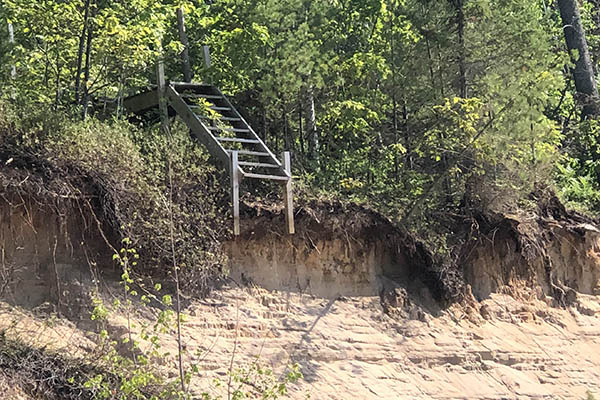 Great Lakes Literacy education exploration, or GLLee, opportunities are an introductory collection of resources and partners assembled to better equip educators to explore Great Lakes Literacy with youth through place-based education and stewardship opportunities in your school and community!
Great Lakes Literacy education exploration, or GLLee, opportunities are an introductory collection of resources and partners assembled to better equip educators to explore Great Lakes Literacy with youth through place-based education and stewardship opportunities in your school and community!
What is a GLLee?
- Free, asynchronous short course that can be accessed virtually anytime
- Google Classroom modules designed for educators to support youth engagement
- Great Lakes focused issues and/or topics, career explorations with scientists, classroom resources, stewardship and hands-on learning opportunities
- Connections with other educators in a virtual community of practice
Educators receive a certificate representing three contact hours of study after completing a GLLee course along with a digital notebook with all the resources from the module.
Want to participate in a GLLee?
CGLL programs are open to all, but registration is required for educators to gain access to each Google Classroom and connected content.
Please note you will need to use a personal Gmail address (i.e. not your school address) to access course materials.
For any questions, accessibility concerns or issues with this virtual resource, please contact admin@cgll.education.
Topics
Aquatic Invasive Species
- Who? Best suited for educators who work with students in grades 4-12
- What? Aquatic invasive species are nonindigenous species that have a negative environmental, social, or economic impact on the Great Lakes region.
- Driving Question? How do invasive species impact the Great Lakes and what can we do to help reduce their impacts on native ecosystems?
- Register for Aquatic Invasive Species GLLee
Climate Literacy
- Who? Best suited for educators who work with students in grades 4-12
- What? Climate Science Literacy is an understanding of your influence on climate and climate’s influence on you and society.
- Driving Question? How does climate impact Great Lakes communities and ecosystems?
- Register for the Climate Literacy GLLee
Coastal Erosion
- Who? Best suited for educators who work with students in grades 6-12
- What? Coastal erosion is the process by which strong wave action and coastal flooding wear down or carry away rocks, soils, and sands along the coast.
- Driving Question? How does coastal erosion shape the shorelines of the Great Lakes and impact our ecosystems and communities?
- Register for Coastal Erosion GLLee
Marine Debris
- Who? Best suited for educators who work with students in grades 4-12
- What? Marine debris is any human-made material that can end up – on purpose or by accident – in our rivers, ocean, and Great Lakes.
- Driving Question? How does marine debris impact our Great Lakes and animals (including humans) and plants that depend on this freshwater resource?
- Register for Marine Debris GLLee
Urban Water Cycle
- Who? Best suited for educators who work with students in grades 4-12
- What? Urban (human) water cycle is a series of processes and paths that water takes as it is used by a community, including stages of collection, transportation, storage, purification, distribution and delivery, and return to natural bodies of water.
- Driving Question? How do people access clean, fresh water, and what happens to the water after its use?
- Register for Urban Water Cycle GLLee
Vernal Pools
- Who? Best suited for educators who work with students in grades 6-12
- What? Vernal pools are “wicked big puddles” and ecologically serve as the “coral reefs of our northern forest ecosystems.”
- Driving Question? How do vernal pools (seasonal woodland wetlands) benefit the Great Lakes region?
- Register for Vernal Pools GLLee





